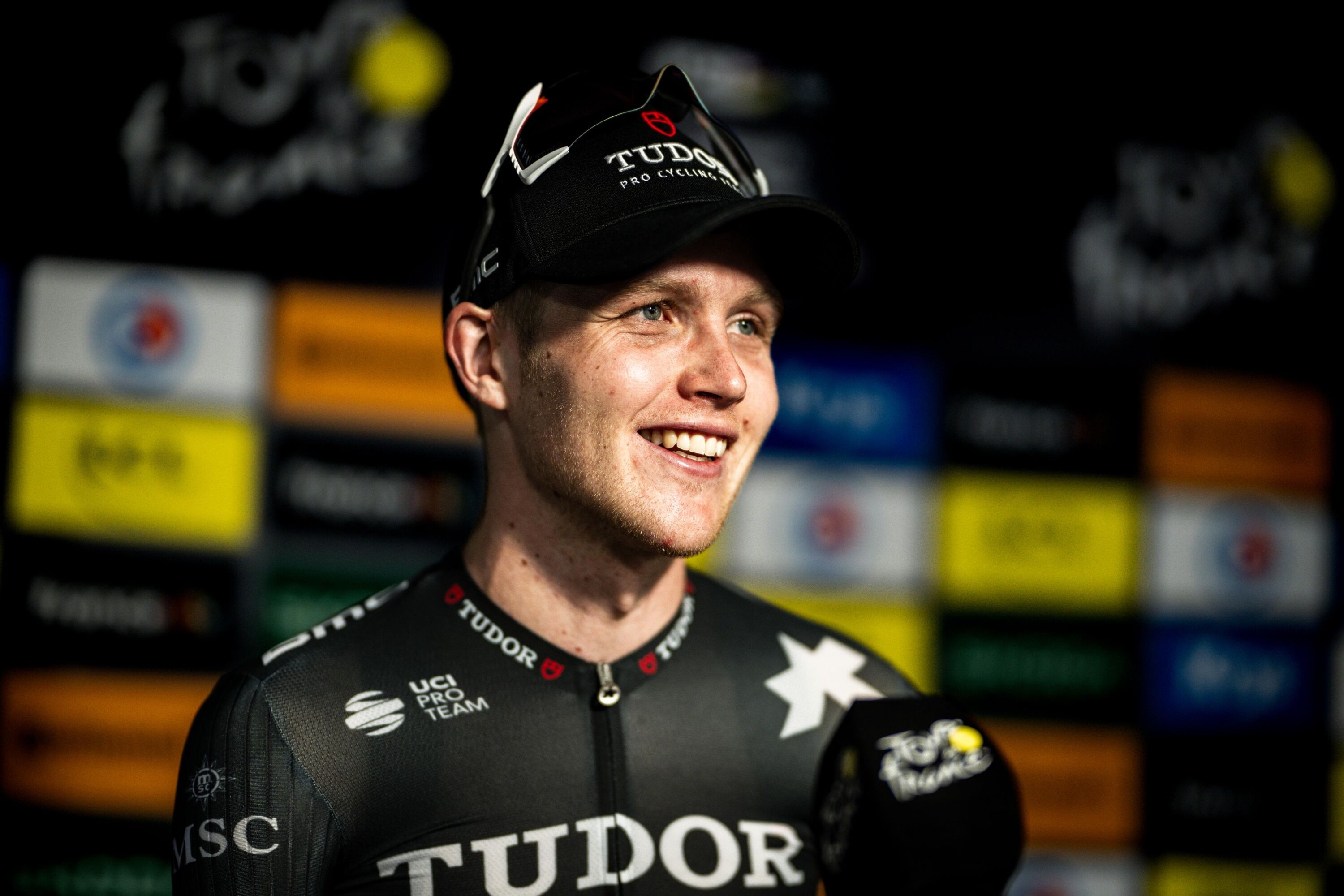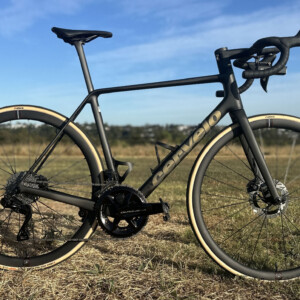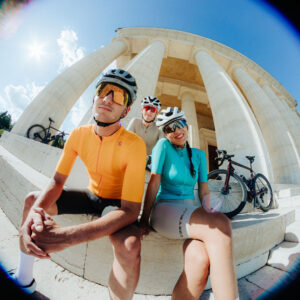Statistically, it’s already been a career-best season for Michael Storer. Peter Maniaty caught up with Tudor Pro Cycling’s Australian star as he recharged in Italy in preparation for a final block of racing in 2025.
Don’t be fooled by his boyish looks. 28-year-old Michael Storer is sharp, focused and as determined as they come on a road bike. He’s also currently riding one of the best seasons of his eight-year professional career, having finished fifth at Paris-Nice, tenth at the Giro d’Italia and winning the Tour of the Alps overall back in April. With the stresses of the Tour de France now in the rear-view mirror, the Australian is plotting a big finish to 2025 that includes one-day races across Italy and his second UCI Road World Championships.
2025 is the first time you’ve ridden the Giro-Tour double in the same season – how have you pulled up?
MS: I was definitely feeling pretty tired just after the Tour. I’ve done the Giro-Vuelta before, but never Giro-Tour. It’s a lot harder physically, but there’s also a big mental load. After the Giro I actually got sick and spent about a week laying on the couch. But this time (after the Tour) I’ve just been watching some movies and catching up with people, no strenuous activity involved.
Given the lofty ambitions of Tudor Pro Cycling there are high hopes whenever you race. Do you feel that pressure?
MS: I do a little bit. The team hasn’t put heaps of pressure on me but I was definitely going into those big races to perform, not just make up numbers. I’d say my Giro was ‘neutral’. I wanted to do better than tenth, but it could have been worse as well so I was generally satisfied. If everything went perfectly maybe I could have been fifth or sixth overall. But obviously if everything doesn’t go perfectly, you maybe don’t even finish the race.
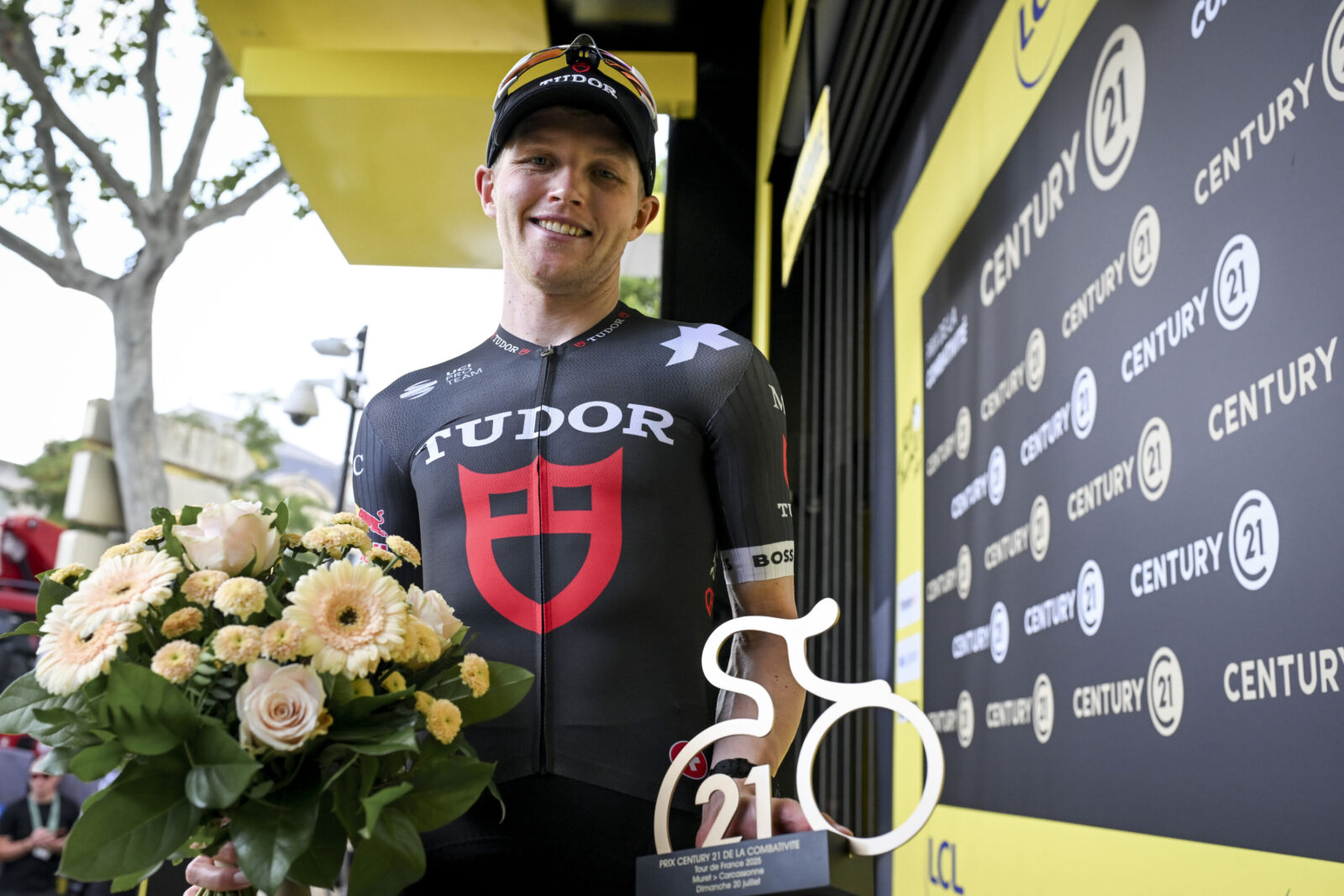
At the TdF, you had two top five stage results this year. You came close to the getting your first-ever stage win – was that a little frustrating?
MS: Overall I think it was a good result and I enjoyed the racing, parts of it anyway. But similar to the Giro, if a few things went differently I could have been in serious contention for a stage win. I was close but you just need everything to fall in place, especially because a lot of riders take more risks at the Tour than in other races, they really push the limits. These days I definitely handle the stress of the Tour better with more experience.
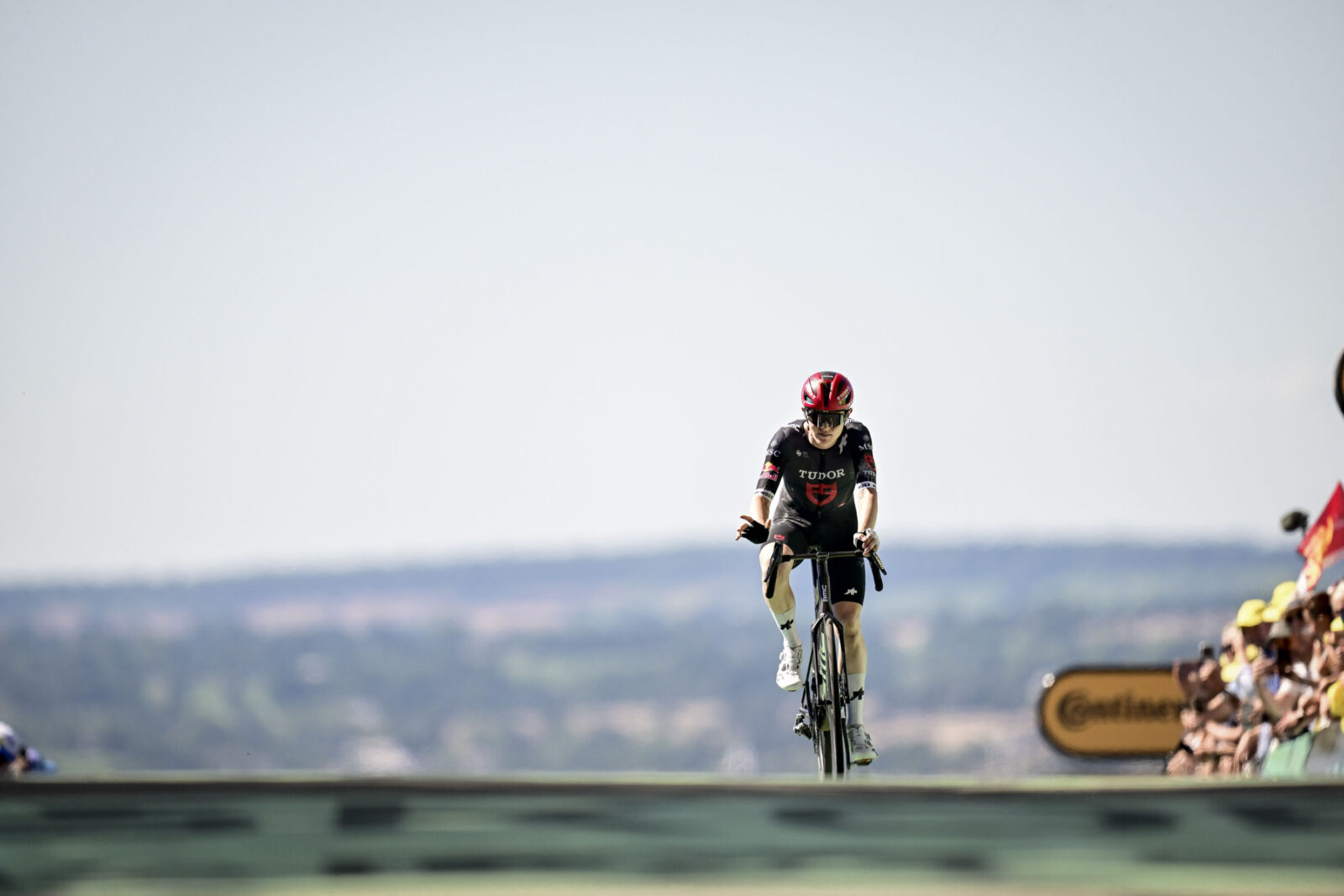
How would you describe racing the Tour de France with Tudor Pro Cycling versus your previous team?
MS: It was actually pretty similar because the Tour is still really important for both teams. We also had a big French star on our team this year, Julian Alaphilippe, so that meant we got a lot of attention from the French fans, which is the same type of experience from Groupama-FDJ previously. Julian had to do a lot more interviews than the rest of us. It meant I didn’t have to do any interviews in the first week, which was good as I was just being really careful – there was nothing for me in the first five stages, I just needed to focus on staying out of trouble.
You had a front row seat watching Tadej Pogaˇcar, one of the all-time greats of the sport. Does his presence inspire you or demoralise you?
MS: (laughs) It’s more demoralising really, because you know even at best you’re probably going to still run second. He did get beaten at the Tour but you have to have a very special day to do it – and a bit of a head start on the last climb is also handy! His team were controlling the breakaways super hard on almost every stage at this year’s Tour, which was sometimes confusing when they then suddenly decided not to go for the stage win. There was one stage, I think it was Stage 20, when apparently the French fans were booing him so hard on the last climb his team decided not to win. But that was pretty much the only day where they really let the breakaway go. In the future we can all say, ‘I raced against him’ but at the moment it’s just a pain. You have to completely max out your potential to compete against the guy.
There are still some big races left for 2025. What does your program look like from here?
MS: At this stage I have seven race days left in my program. I’ll do some of the smaller Italian one-day races in September like the Giro della Toscana in Tuscany and the Memorial Marco Pantani near Rimini in Emilia-Romagna. Then it’s the World Championships followed by some of the big Italian races at the end of the year like Il Lombardia and the Giro dell’Emilia.
On paper the World Championships course in Kigali looks like it should really suit you.
MS: Absolutely and I’m excited to do Worlds again for sure (Storer was selected for the first time in Zurich in 2024). It’ll be extra special doing the first Worlds in Africa, it’s going to be quite an occasion I imagine. The Australian selectors had their long list and kept in contact with us, asking us how we were going and what races we were doing during the performance period. But it’s always a hard one selecting a team (for major championships) because if you do it too early it’s bad because then maybe you get some riders who drop off a bit before the race. But if you select too late it can also be bad because then no one can actually prepare properly, it’s a bit of a balance.
NB. Storer came an admirable 19th in the World Champs road race.
2026 is the final season of your current contract with Tudor Pro Cycling. With riders constantly coming and going, how are you feeling?
MS: New contracts seem to be happening earlier and earlier in pro cycling, but you do learn to accept it (the contract cycle). I remember in my first team it was hard when teammates left because it really does change the identity of a team when certain riders leave because they often uphold the culture, especially if they’re the centre of conversations. When those guys go it’s a whole new social dynamic. I’ll probably keep experiencing that in my career, but it’s just part of the sport.
On the positive side, Tudor Pro Cycling seems quite stable compared to many other pro teams.
MS: That’s true, the team has only been around for three years so it’s still more about riders coming in rather than riders going out. The staff turnover is also pretty low so we do have more of that core group with less turnover. But you don’t want zero turnover either. I think you want a little bit of change (from season to season).
How ambitious is the team? Clearly WorldTour is what you’re ultimately all striving for?
MS: For sure and this next three-year UCI cycle is going to be super important. I think it’s going to be pretty heated, going for UCI points for the whole three years, certainly at least for the first two years. After that some teams will probably be pretty well established and not stressing – but then there will be other teams in the relegation zone really chasing points hard.
Does team management talk to the riders about the importance of accumulating UCI points?
MS: It’s definitely on their radar, more and more. I’m one of the guys who needs to score points and I always keep that in mind. Clearly I care about victories, but if I can at least get a place in the points that’s always a lot better (than nothing). The next three years are essential so I’ll be coming out of the gates pretty hard in 2026. The whole team will.
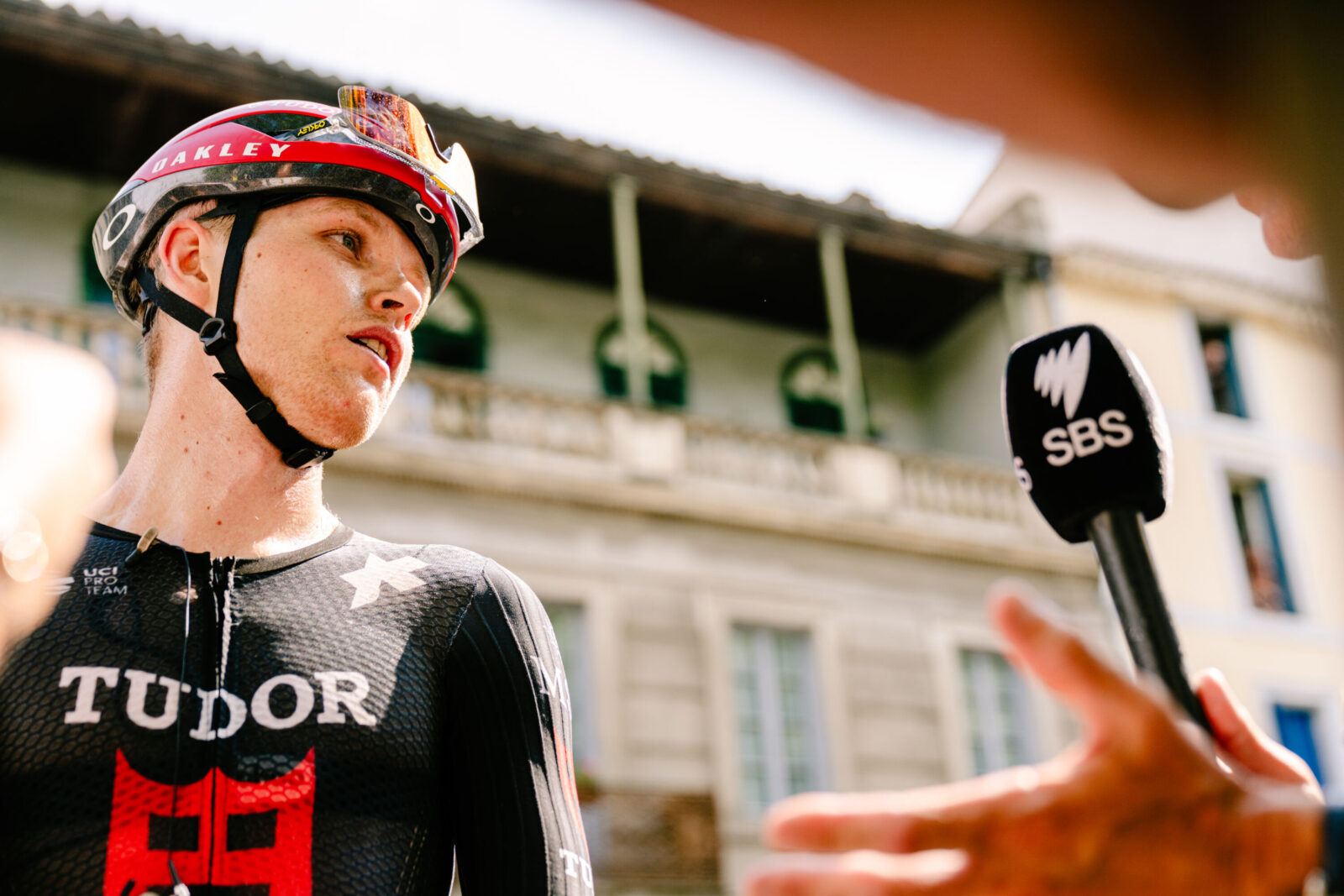
When you first entered the pro peloton as a 20-year-old, did you have any real idea of what you were in for?
MS: It’s been a huge learning curve – and you keep learning as well. It never stops until you stop racing really. But I guess back then I was kind of ready because I’d done two years in Europe racing in the Under 23 scene. As for what I’d tell myself if I could go back in time? Probably just ‘good luck!’
Now you’ve been doing this for a while (eight seasons), what’s the best thing about being a pro cyclist?
MS: I really enjoy the training, the preparation and also the racing as well. The whole experience of racing against the very best in the world is the coolest experience you can do, just finding and pushing those limits. I still love it. What I don’t love so much are the sacrifices of living so far from Australia – it’s difficult living overseas. The other thing is the crashes because they hurt, those are the only two negatives really.
Last year you didn’t race in Australia over the off-season. Will you be coming home this time?
MS: I’m not completely sure yet. In October we’ll probably have a general idea, certainly of my first race for next season and definitely by November and December I’ll know. But I do want to do Nationals. I know the roads around Kings Park in Perth extremely well – not that they’ll help me much, the course is a bit too flat for me – but it would be a really cool experience.
Is there a chance we might see you at the TDU or is that tricky with Tudor Pro Cycling not being WorldTour?
MS: For races like the Tour Down Under we need to get an invitation. I know the team has been asking, but I think the organisers aren’t really keen on bringing out extra teams (from Europe), so that’s a bit of a barrier.
Could racing with the Australian team be another option, you’ve done that before?
MS: Maybe, but I don’t really want to take spots away from other Aussie riders who need it more than me. I don’t have to do the Tour Down Under, it’s a nice race, but it’s not exactly a pure climber’s race for someone like me.
You started this season at the UAE Tour in February. How did you find that compared to previous years?
MS: I didn’t mind it, having a bit of extra preparation time at the start of the year was probably better going into races like Paris-Nice (where Storer won Stage 7 and finished fifth).
Do you get a lot of support from Australia during the Tour and other big races?
MS: Yeah, I do get messages from home. But I’m not inundated, which is also good. I feel the support and whenever there’s an Aussie fan at the Tour, they stick out like a sore thumb. You never miss them!
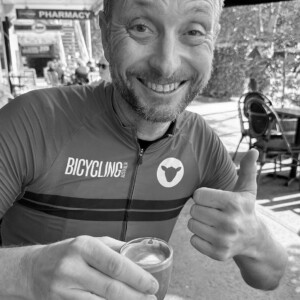
Peter Maniaty
Peter Maniaty - Peter is Bicycling Australia’s senior journalist, and highly respected in the world of cycling. From bike reviews, to destination features and nitty gritty opinion pieces, he’s a gun writer.
